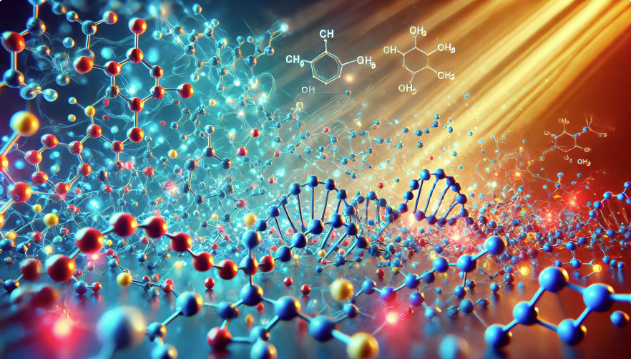In the complex world of biochemistry and health, peptides are emerging as fascinating and versatile molecules with numerous potential applications. But what exactly are peptides, and how do they work within our bodies? Let’s explore these questions to uncover the science behind these essential biomolecules.
What Are Peptides?
Peptides are short chains of amino acids linked together by peptide bonds. Amino acids are the building blocks of proteins, which are larger and more complex structures. When these amino acids are joined together in smaller groups, they form peptides. Essentially, peptides are fragments of proteins, and their length typically ranges from just a few amino acids to around 50.
To give you an idea:
- Peptides: Short chains, fewer than 50 amino acids.
- Proteins: Longer chains, often consisting of hundreds or thousands of amino acids.
Despite their shorter length, peptides play crucial roles in various biological processes.
How Do Peptides Work?
Peptides are involved in a wide range of physiological functions. Their actions can vary depending on their specific sequence and structure, but here are some of the key ways they work:
1. Hormonal Regulation
Many peptides function as hormones, which are chemical messengers that travel through the bloodstream to regulate physiological processes. For instance:
- Insulin: This peptide hormone is vital for regulating blood glucose levels by facilitating the uptake of glucose into cells.
- Oxytocin: Known as the “love hormone,” it plays a role in childbirth and lactation and can influence social bonding and emotional responses.
2. Neurotransmission
Peptides also act as neurotransmitters or neuromodulators in the nervous system. They help transmit signals between nerve cells, affecting various functions such as mood, pain perception, and cognitive processes. Examples include:
- Endorphins: These peptides act as natural painkillers and mood enhancers.
- Substance P: Involved in the transmission of pain signals, contributing to our perception of pain.
3. Immune Response
In the immune system, peptides help coordinate and regulate immune responses. They can act as signalling molecules that activate or inhibit immune cells, ensuring an appropriate response to pathogens and injuries. For example:
- Defensins: These antimicrobial peptides help protect the body from infections by disrupting the membranes of bacteria.
- Cytokines: Peptides that act as signals to modulate the immune response and facilitate communication between immune cells.
4. Cell Communication
Peptides play a critical role in cell communication, which is essential for maintaining the health and function of tissues. They can influence:
- Cell growth and differentiation: Peptides can signal cells to grow, divide, or differentiate into specific types.
- Wound healing: Certain peptides stimulate the repair of damaged tissues and promote regeneration.
5. Regulation of Metabolic Processes
Peptides are involved in regulating various metabolic processes within the body. For instance:
- Ghrelin and leptin: These peptides help regulate appetite and energy balance. Ghrelin stimulates hunger, while leptin signals satiety.
The Science Behind Peptide Action
Peptides exert their effects by binding to specific receptors on the surface of target cells. This binding activates intracellular signaling pathways that lead to a physiological response. The specificity of this action is determined by the unique sequence of amino acids in the peptide and its three-dimensional structure.
When a peptide binds to its receptor, it can:
- Activate or inhibit enzyme activity: This can lead to various cellular changes.
- Alter gene expression: Influencing how cells respond to stimuli or develop.
- Change cell metabolism: Affecting how cells process nutrients and produce energy.
Applications of Peptides
The potential applications of peptides are vast and varied. Here are a few notable areas where peptides are making an impact:
- Medicine: Peptides are being developed as treatments for a range of conditions, including cancer, diabetes, and cardiovascular diseases. Their ability to specifically target certain receptors makes them promising candidates for targeted therapies.
- Cosmetics: In skincare, peptides are used for their potential anti-aging effects. They can help improve skin texture, reduce wrinkles, and promote collagen production.
- Fitness and Performance: Peptides are explored for their potential to enhance muscle growth and recovery. However, their use in sports is subject to regulatory scrutiny to prevent misuse.
Conclusion
Peptides are remarkable molecules with diverse functions that are integral to many physiological processes. From hormonal regulation to immune responses and cell communication, their roles are as varied as they are essential. As research continues, the therapeutic potential of peptides holds great promise, offering new avenues for treating diseases and improving health.
Whether you’re interested in the science behind these molecules or exploring their applications in health and wellness, understanding peptides provides valuable insights into how our bodies function and how we can harness these tiny but mighty molecules for better well-being.

